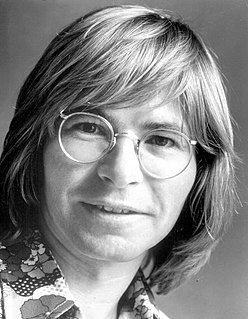A Quote by Bernard of Clairvaux
We find rest in those we love, and we provide a resting place in ourselves for those who love us.
Related Quotes
Some of us are lucky enough to fall in love once or twice but the luckiest of us are those who find that someone they simply can't live without and have the pleasure of falling in love with them day in and day out for the rest of their lives. Relationships aren't about simply falling in love once and being done with it, they're about loving someone until the end of your days and growing that love endlessly.
There is no pain equal to that which two lovers can inflict on one another... It is when we begin to hurt those whom we love that the guilt with which we are born becomes intolerable, and since all those whom we love intensely and continuously grow part of us, and since we hate ourselves in them, so we torture ourselves and them together.
Just as love blinds us to imperfections in others, it magnifies those we see in ourselves. But if this is true, then the opposite must also be the case. We can take comfort in the fact that our faults will be invisible to those who love us. The success or failure of any relationship depends not just on how we feel about each other, but on how we make each other feel about ourselves.
I believe that we carry within us a divinely inspired moral imperative to love ... We have within us the ability to change for the better and to find dignity as individuals rather than as drones in one mass movement or another. We have the ability to love, the need to be loved, and the willingness to put our own lives on the line to protect those we love, and it is in these aspects of ourselves that we can glimpse the face of God; and through the exercise of these qualities, we come to a Godlike state.
I have learnt that all our theories are not Truth itself, but resting places or stages on the way to the conquest of Truth, and that we must be contented to have obtained for the strivers after Truth such a resting place which, if it is on a mountain, permits us to view the provinces already won and those still to be conquered.
I won't say he [Shakespeare] 'invented' us, because journalists perpetually misunderstand me on that. I'll put it more simply: he contains us. Our ways of thinking and feeling-about ourselves, those we love, those we hate, those we realize are hopelessly 'other' to us-are more shaped by Shakespeare than they are by the experience of our own lives.
































